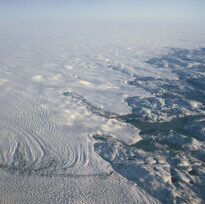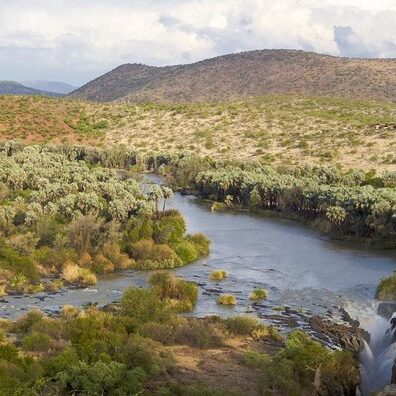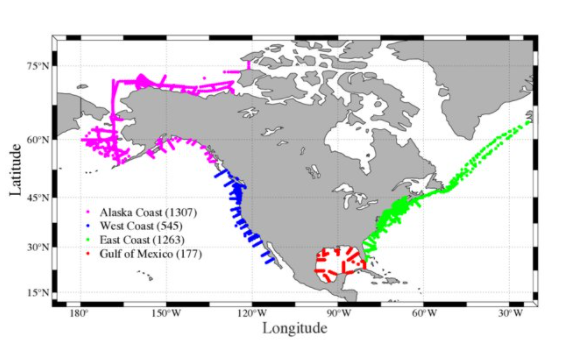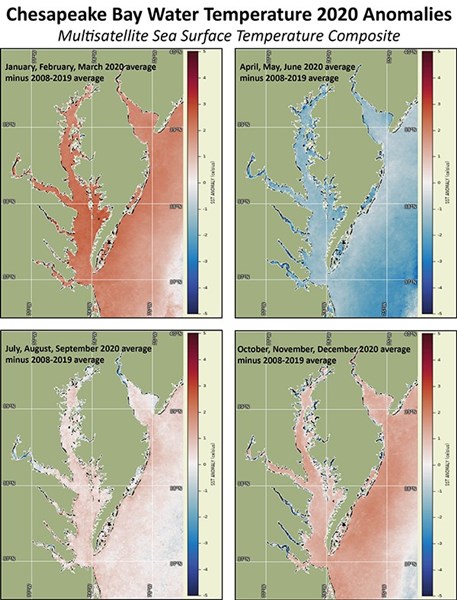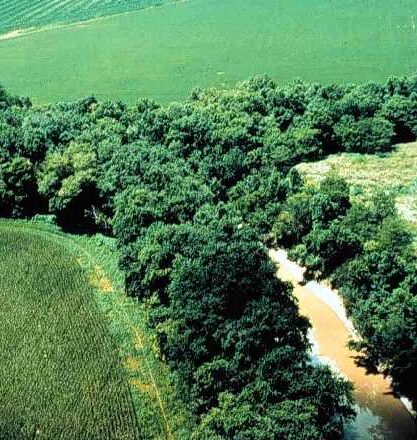ESSIC/CISESS Scientist Liqing Jiang led the development of a new data set called the Coastal Ocean Data Analysis Product in North America (CODAP-NA). It is an internally consistent data product for discrete inorganic carbon, oxygen, and nutrients on the U.S. North American ocean margins. CODAP-NA is one of the first major coastal ocean acidification (OA) data products. Its coverage includes all ocean margins of the conterminous United States, as well as part of Alaska. It will help the U.S. prepare OA mitigation and adaptation strategies. This collaborative effort is also a showcase example of NCEI/CISESS taking a leading role in a major synthesis effort involving NOAA labs (AOML and PMEL) and academic institutions (University of Maine, University of New Hampshire, University of Delaware, University of Miami, University of Alaska at Fairbanks, and Georgetown University). Earth System Science Data accepted an article on CODAP-NA on May 2. CISESS Scientist Alex Kozyr is a co-author.
